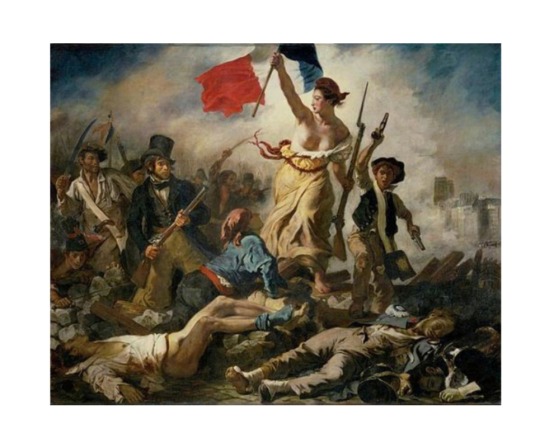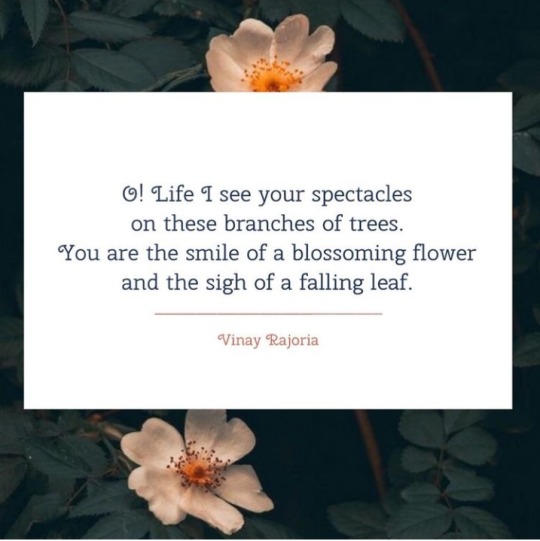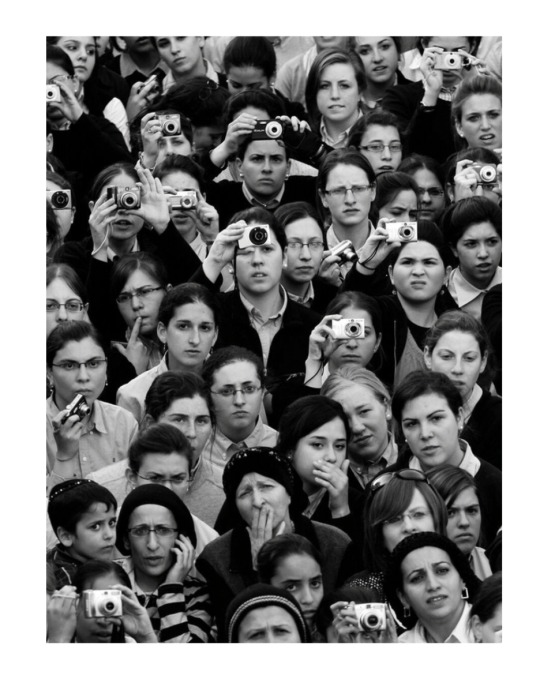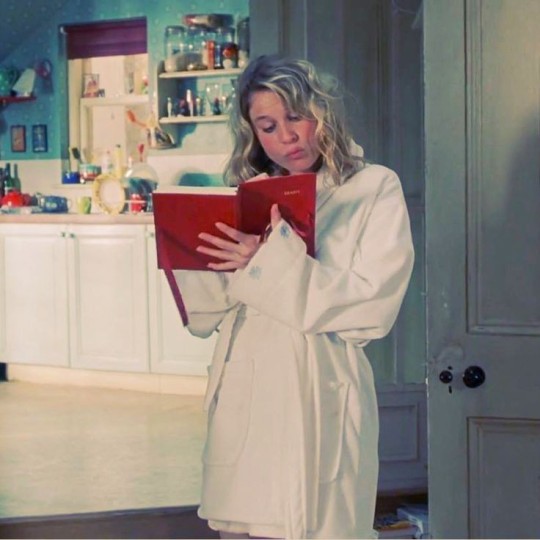Text
A Critical Essay on the Life & Poetry of William Wordsworth
With respect to 'The Prelude' & the 'Lyrical Ballads'

Portrait of the English Romantic poet William Wordsworth by Benjamin Haydon.
"You have given me praise for having reflected faithfully in my poems the feelings of human nature. I would fain hope that I have done so.
But a great poet ought to do more than this; he ought, to a certain degree, to rectify men’s feelings, to give them new compositions of feeling, to render their feelings more sane, pure, and permanent; in short, more consonant to Nature, that is, to eternal Nature, and the great moving spirit of things."
Wordsworth wrote this in a letter, in response, to his friend, John Wilson on the 7th of June 1802, thanking him for his heartiest congratulations on the success of his Lyrical Ballads and in the process reflected on the ideas of his poetical abilities and ambitions. Indeed, Wordsworth was a poet far ahead of his times, creating over the span of eighty years a colossal magnitude of poetic works which have become a part of the very fabric of the English language and literature.
Like many of his contemporaries, Wordsworth was influenced acutely by the historic event of the French Revolution, of which he was not only an observer but an active participant and supporter. But before delving too deep into his works and genius we must understand something about his life and childhood, without which, one cannot think of understanding his poetry let alone Wordsworth himself.

Young Wordsworth in 1798, in Town End, Grasmere.
WILLIAM WORDSWORTH was born in the Lake District in April 1770 and died there eighty years later on 23 April 1850. He had three brothers and a sister, Dorothy, to whom throughout his life he was especially close. When she was six and he was nearly eight, their mother died. Dorothy was sent away to be brought up by relatives and a year later William was sent to Hawkshead Grammar School.
Wordsworth was cared for in lodgings and led a life of exceptional freedom, roving over the fells that surrounded the village. The death of his father broke in on this happiness when he was thirteen, but did not halt the education through nature that complemented his Hawkshead studies and became the theme of his poetry.
As an undergraduate at Cambridge, Wordsworth traveled (experiencing the French Revolution at first hand) and wrote poetry. His twenties were spent as a wanderer, in France, Switzerland, Wales, London, the Lakes, Dorset, and Germany. In France, he fathered a child whom he did not meet until she was nine because of the War.
In 1794 he was reunited with Dorothy and met Coleridge, with whom he published Lyrical Ballads in 1798, and to whom he addressed The Prelude, his epic study of human consciousness. In the last days of the century, Wordsworth and Dorothy found a settled home at Dove Cottage, Grasmere. Here Wordsworth wrote much of his best-loved poetry, and Dorothy her famous Journals.
In 1802 Wordsworth married Dorothy’s closest friend, Mary Hutchinson. Gradually he established himself as the great poet of his age, a turning-point coming with the collected edition of 1815. From 1813 Wordsworth and his family lived at Rydal Mount in the neighboring valley to Grasmere. In 1843 he became the poet laureate.

A recent cover page of the 'Lyrical Ballads' by Wordsworth & Coleridge, which heralded the Romantic Age in English Literature.
Now, keeping this dynamic canvas of Wordsworth’s life in consciousness can begin to grasp the magnitude of his poetic genius. To begin with, we can say Wordsworth was a game-changer in the history of English poetry. By publishing, his epoch-making collection of poems, Lyrical Ballads, Wordsworth along with Coleridge heralded the Romantic Age of English poetry. On which Coleridge writes in chapter 14 of his book, Biographia Literaria, about Wordsworth and his romantic ideas thus:
"Mr. Wordsworth, on the other hand, was to propose to himself as his object, to give the charm of novelty to things of every day, and to excite a feeling analogous to the supernatural, by awakening the mind’s attention to the lethargy of custom, and directing it to the loveliness and the wonders of the world before us; an inexhaustible treasure, but for which, in consequence of the film of familiarity and selfish solicitude, we have eyes, yet see not, ears that hear not, and hearts that neither feel nor understand."
-Coleridge on Wordsworth, Biographia Literaria
And so we see that Wordsworth did exhibit all these themes and ideas repeatedly in his entire works. He takes as his subjects the poor, the old, and the outcast, for example in the poems ‘Goody Blake and Harry Gill’, Wordsworth talks about an old woman who has to steal firewood to survive the winter. His poem, ‘Her Eyes Are Wild’, about a vagrant woman suckling her child:
Suck, little babe, oh suck again,
It cools my blood, it cools my brain,
Thy lips I feel them, baby, they
Draw from my heart the pain away.
-from ‘Her Eyes Are Wild’
In ‘The Old Cumberland Beggar’, a beggar sits among ‘wild empty hills’ eating, and his ‘palsied hands’ scatter crumbs while the ‘small mountain birds’ surround him, waiting warily for their ‘destined meal’. In the popular poem, ‘The Idiot Boy’ a poor countrywoman, Betty Foy, is the mother of a disabled son who gets lost and spends a night in the open air. When she finds him he speaks wonderingly of the owls and the moon, without realizing what they are.
This was a major breakthrough in English poetry as Wordsworth brought to the poetic arena, the lives of the common people and this was huge because no one had ever made such people a subject of their poems before. Also new in Lyrical Ballads are poems about children and how adults fail to understand them.
In the poem, ‘Anecdote for Fathers’, a boy resists adult logic, and in ‘We Are Seven’, a small girl, whose brother has died, insists that he still counts as one of the family. Wordsworth’s belief in the superiority of childhood is expressed most challengingly in the ‘Immortality Ode’ written in 1802, where he remembers his early years.

A painting of the French Revolution of 1789, which ousted monarchy from France and had a big impact on Wordsworth and many intellectuals.
Through his selected works, written after the experiences of the French Revolution, one also comes to feel the sympathetic nature of Wordsworth towards the lowly and the poor. Like in The Prelude, he recalls, how a revolutionary friend pointed to an emaciated girl they met on a walk and declared:
'Tis against that
That we are fighting
In the ‘Residence in London’ book of the same poem, he remembers seeing a poor man with a sick child in his arms, and writes:
Bending over it,
As if he were afraid both of the sun,
And of the air which he had come to seek,
Eyed the poor babe with love unutterable
As for expressing the moods and settings of nature, Wordsworth is the unquestioned master, often and aptly called by many to be the poet of nature. One can even argue that no English poet expresses nature in its innate sensual beauty and spiritual entirety as Wordsworth.
What’s more interesting in Wordsworth’s portrayal of nature is that for him Nature is not just Mother Earth that needs to be expressed and captured in words but is much more than that. Like in the poem ‘Lines Written in Early Spring’, included in Lyrical Ballads, Wordsworth expresses the belief that nature is conscious as he writes:
'Tis my faith that every flower
Enjoys the air it breathes.’
Or the core Romantic belief that nature is a moral educator is stated with breath-taking simplicity in another Lyrical Ballads poem, ‘The Tables Turned’ where he writes:
One impulse from a vernal wood,
May teach you more of man,
Of moral evil and of good,
Than all the sages can.
In this regard one remembers a famous passage from The Prelude which gives an instance of Wordsworth expressing, nature acting as a moral guardian. The passage is about one summer evening when young Wordsworth takes a boat without its owner’s permission, and as he rows, he expresses:-
A huge peak, black and huge,
As if with voluntary power instinct,
Up reared its head
It seems to stride after him and, trembling, he returns the boat to where he found it. Even when not guilt-ridden, the boy Wordsworth in The Prelude is aware of nature as a living presence:
I heard among the solitary hills
Low breathings coming after me and sounds
Of indistinguishable motion, steps
Almost as silent as the turf they trod.
On Wordsworth’s poetic oeuvre, Walter Pater, a critic of Wordsworth’s time comments in his essay titled- Appreciations (1889) that Wordsworth to be the poet of ‘impassioned contemplation’ and in stressing both words equally, he got the balance exactly right. In his attempts to characterize the nature of the poetic or creative power, Wordsworth laid similar emphasis on impassioned seeing.
Perhaps, one can say, that the best encapsulation of Wordsworth's entire creative output has been written by none other than Wordsworth himself in the poem, ‘Glad sight wherever new with old’, written in 1842 when he was seventy-two. This poem points to almost everything that has been central to his long imaginative engagement with words and things. Wordsworth in it writes:
Glad sight wherever new with old
is joined through some dear home born tie;
The life of all that we behold
Depends upon that mystery.
Vain is the glory of the sky,
the beauty vain of field and grove
Unless, while with admiring eye
We gaze, we also learn to love.
Image Credits:- Pinterest & Google
References & Research:-
The Concise History of English literature by William Henry Hudson
The Routledge history of English literature
The Routledge Anthology of Poets on Poets
A little history of Poetry by John Carey
JASTOR Essays
Follow Me On Instagram
instagram
Up Next
Wanna Read More
#art#criticism#william wordsworth#dorothy#literature#poetry#love poem#artwork#essays#english homework#photography#books & libraries#naturepoems#romanticism#Instagram#english lit student#literary criticism#romantic quotes#romantic poetry#hopeful romantic#samuel taylor coleridge#penguin classics#ballad#lyric headers#lyric aesthetics#portrait#country music#english#buy online essays#essay paper writing services
17 notes
·
View notes
Text

#mypoetry#art#life#urduquotes#urdu poems#urdushairi#urduadab#urduwrites#urdu sher#criticism#philosophy#essays#literature#artwork#photography#aestheitcs
1 note
·
View note
Text
An Essay on the True Nature of Literature.
By Vinay Rajoria

Nobel Prize winning American writer, Ernest Hemingway,writing at his desk.
Looking at a koel bird singing in the hot summer loo or the sprightly squirrel hiding in the pink petals of bougainvillea, I have often wondered what makes me, a mere human, distinct from these other equally alive and walking-talking creatures? At once, a thousand bits and pieces of intriguing answers rush to my mind but when I behold them one by one, then one distinct fact shines more profoundly than others. The fact called culture! In other words, humans unlike other animals are cultured creatures.

Broadly speaking, a culture is defined as the way of life of a group of people. It has many more complex dimensions but for the sake of this discussion, this will suffice.
Culture includes two parts-material culture and non-material culture. Material culture refers to all the tools, objects, buildings, etc., or in other words every tangible aspect of human creation. But more important to not just the argument of this essay but to the essence of human beings, themselves is the non-material aspect of culture. An aspect that includes the most precious of human resources called ideas and beliefs. This facet of culture is the accumulated knowledge that is learned and passed on from one generation to another.
And it is here, we see the immense importance and almost sheer necessity of the sophisticated tool of communication that humans have developed and perfected over the years, for the efficient transfer of this non-material culture, called language.
Now language, while being a part of the culture, has played and continues to play a vital role in the transmission of ideas. It enables information to be passed from one individual to another, quickly and easily. Initially, this form of effective information transferring was naturally oral, that is information was passed on by the means of different sounds or human voice. This oral tradition to communicate one's thoughts and feelings still continues to exist in the spoken form, but unlike the earlier ages, humans over time developed a new and a much better means of communication which we now call written culture.
It fills me with sheer wonder when I realize how much writing has enhanced the power of sophisticated communication by making information permanently available to others. It has made a thought become almost immortal by making it free from the boundaries of both space and time. With it, anyone can communicate from the deepest of human emotions to the shallowest of political arguments to someone miles away from them, to someone born centuries and centuries after they have gone. In other words, the written word has made the entire corpus of human knowledge, amassed over the years, available to everyone and anyone, just as it was there at the moment of its inception in the mind of its creator.

Now building on this little background of human thought, one can see the question under consideration more effectively. So what is literature? This is a question that evades the exactness of a standard definition so much so that for once it might look like catching moving air with bare hands. But we must keep hope thinking like the German philosopher Nietzsche, who said "and if you gaze long into an abyss, the abyss also gazes into you".

19th-century German philosopher and writer, Friedrich Nietzsche, who wrote the famous book-'Beyond Good &Evil'.
So when you look deep enough, you begin to notice that certain endemic characteristics inherent in all literary works shining out at you. Characteristics that make defining literature a bit easier and propelling us to understand its true nature which makes it distinct from just any written work.
Literature, as I wrote earlier, is about the act of writing itself. It's an integral and a more specialized dimension of the non-material culture. It takes birth from the human desire to express itself in words. And though, it definitely has more nuanced dimensions, but at its very core, it concerns itself primarily about the written existence of thoughts and ideas in the form of symbols called letters.
And it is this cultural influence of the written word which marks the distinction between the languages and dialects spoken around the world; that is languages have their roots and their history in their respective literature. They have the fertile soil of epics and poetry to draw and grow from. Be it then Sanskrit having the texts of Vedas and Upanishads, English having the old English poem Beowulf or Chaucer's Canterbury Tales or the Greeks having Homer's Odyssey and the Iliad, etc. One can even say that more often than not, languages have grown and matured from great works of literature rather than the other way around. As has been the case with Chaucer and the English language, where Chaucer's contribution to the language is so huge that it's rightly said that Chaucer found English as a dialect and left it as a language. Thus, we can say that one of the key characteristics of literature is to give a formal literal structure to the spoken as well written languages. It lends the art of communication a set of well-crafted parameters to look for syntax and aesthetics among other things.
This brings us to another very interesting point that sets literature apart from any written word and that is aesthetics. Literary works be they in any language or culture definitely possess a great amount of aesthetics in themselves. It is this aesthetic sense which the writer builds in his words that makes any normal-sounding conversation or a mundane anecdote of hopelessness spring to life. It makes the writer's personal experience into a social experience which the reader can relate to and imagine as if he or she is experiencing it on its own or in his or her own time. It is the aesthetics of Shakespeare's prose and poetry that make the dilemma of Hamlet or the sorrow of Caesar so impeccable in its appeal, making it count as one of the greatest kinds of literature of the world. One sees this aesthetic characteristic trait in almost every page of the great works of literature of the world, making it stand out as not a sheer amassment of jargon of words or a sentence salad uttered out in a stupor but as a true masterpiece of human genius. Literature hence becomes not just a mere written work but in all true sense a work of art.

Literature,thus,can also be defined as the definitive and controlled expression of human creativity in the form of letters and symbols. In this light, it's actually committing crime to say that any sort of written expression is literature because that means giving no credit whatsoever to the creative process and toil the writer puts in to make his personal raw emotions and ideas into an intelligible and aesthetic creation. A creation which then can be appreciated by the millions and connects us to the mind and the heart of the writer, making us all better human beings in the process because literature, especially great literature for that matter, makes us reflect on the human conscious and suffering which otherwise is so diverse and dynamic and perplexing to comprehend.
Literature, to conclude, then becomes an act of empathy, making us feel the inner and the outer world from someone else's perspective or the act of stepping into someone else's shoes. It makes us come closer to our own psyche and propels us to see the parts of ourselves which we often deliberately choose to ignore. As Emerson rightly said, "In the works of great writers we find our own neglected thoughts."
Image Credits:- Pinterest
References:-
The Glossary of Literary Terms by M.H. Abrams
The Concise History of English literature by William Henry Hudson
The Routledge history of English literature
Follow me on instagram
instagram
Read Next
#criticism#english homework#literature#essays#artwork#photography#portrait#books & libraries#country music#ernest hemingway#art#hogwarts#harry potter#helen fielding#history#hermione#mark darcy#dumbledorequotes#design#john donne#english lit student#england#neitzsche#germany
10 notes
·
View notes
Text
Element of Feminism & Pathos in the novel Bridget Jones's Diary.
by Vinay Rajoria

Cover page of a recently published edition of Bridget Jones's Diary.
First published in the United Kingdom in 1996, Bridget Jones's Diary had its origins in a weekly column that appeared in the London newspaper, The Independent. In this column, Helen Fielding, a freelance journalist who had previously worked for the BBC as a television producer, chronicled the comic adventures of an attractive, thirty-something woman, aka Bridget Jones, working in the publishing world and living in the fashionable neighborhood of Notting Hill. Throughout the novel, Bridget is depicted as a chain-smoking, wine-drinking, calorie-counter who obsesses over her fluctuating physical appearance, her stalled career, and, most importantly, her tumultuous love life. The novel is structured around a year's worth of diary entries, each of which is prefaced by a listing of calories consumed, cigarettes smoked, alcohol units imbibed, phone calls logged to friends and lovers, and moments spent having negative thought.

A scene from the 2001 film of the same name, based on the novel Bridget Jones's Diary.
The novel on the surface has a very lighthearted tone which makes us laugh with Bridget as she goes on to describe a year of her life in first person but as we dig deeper in the plotline, we begin to understand the underlying tone of sentimentality and pathos. We observe that beneath its humorous façade, Bridget's chatty account delivers a stinging attack, in a tone of subtle sadness, on the various ways in which movies, books, and fashion magazines have negatively permeated the daily lives of all women and have made them increasingly self-conscious and self-depreciating in the modern world.
This is reflected, most acutely, in the episode of the novel where Bridget is getting all anxious before her date with her charming boss, Daniel Cleaver, where she, after completing the arduous ritual of preparing herself for a date, muses: "My back hurts; my head aches and my legs are bright red and covered in lumps of wax. Wise people will say Daniel should like me just as I am, but I am a child of Cosmopolitan culture, have been traumatized by supermodels and too many quizzes and know that neither my personality nor my body is up to it if left to its own devices”.
Such a passage is characteristic of Fielding's satirical method in that, though filled with pop culture references and delivered in Bridget's blithe, self-deprecating voice, it nonetheless highlights the physical and emotional difficulties inherent in meeting the demands of an image-conscious society that privileges youth and beauty.

Other element of pathos in Bridget’s life is her constant insecurity in believing that she will never find the true love of her life and in her own words, “she would die without someone and going to be eaten by dogs when her singleness causes her death only to be not discovered promptly.” This fear of being left alone to die in misery, mirrors the sadness which characterize thousands of people who inhabit the modern cities, surrounded by crowds and people but are still so empty and alone inside. And it is this sadness which actually defines the whole year and the personality of Bridget throughout the novel. It is catalyzed by Bridget’s own mother who thinks certainly less of her daughter and hence is constantly on the lookout for a decent husband for her. This in turn leads to Bridget meeting Mark Darcy, for the first time, in the beginning of the novel and which apparently ends on a bitter note between the two characters, where Bridget overhears Mark grumbling about her to his mother to have set him up with “a verbally incontinent spinster who smokes like a chimney, drinks like a fish, and dresses like her mother".
This bitter episode is important when we focus on the subtle sadness which undertones the entire novel as it brings out that no matter what Bridget does to look and appear friendly, things turn out disappointing for her. Also, we understand that even though she shoves these disappointments off by laughing at them but inside she is deeply hurt by them. They make her question her own self and lets her down in her own eyes. They make her gulp the bitter truth that she is a failure who cannot remake herself and control her life.
Bridget's diary reveals the external pressure she feels to be better than she is, pressure that exists with reference to her own qualities and qualifications. One such pressure is her mother, whose expectations for her play a fairly complex role in Bridget's thinking. Bridget is made to feel guilty by these expectations of her mother, and even Una Alconbury; her mother’s best friend, in whom Bridget sees "the mummy I'd never really had"
Another major pang of sorrow springs up for Bridget when at the Darcy’s' Ruby Wedding anniversary party at the end of the novel where, Bridget confesses her feelings for Mark, only to learn that he and Natasha have accepted jobs in New York and are on the verge of an engagement, according to Mark's father. Bridget interrupts the toast with an emotionally moving speech which peters out as she realizes the hopelessness of her position; her words clearly have an effect on Mark, but he still flies to New York.
Also, immensely heart-breaking for not just Bridget but for the readers as well, is the central episode of the novel where the charming and humorous, Daniel Cleaver is found to be cheating on Bridget with an American secretary of his. Bridget finds her naked in Cleaver’s apartment while Cleaver tries to woo Bridget in believing otherwise. This makes her realize that the one man whom she trusted and found in life after so long is actually unfaithful to her; this sort of breaks something inside her and makes us feel piety for her. Thus, it makes her reassure on the stereotypes she had been holding all her life, and which was beginning to cast off, that she isn’t attractive enough or will eventually die bitter alone in her flat in London.

Amongst the remaining elements of pathos, which we can point out, are the Bridget's foolish appearance at a tarts and vicars party, and her disastrous dinner party near the close of the novel, where she feels the misery of being the only single person present there and the utter blankness she will have to face if someone asks her ‘So how’s your love life?’. All these tell us Bridget’s obsessive behavior to expose the undue influence that today's mass media, families, relationships and career contacts and rivalries has had in shaping women's attitudes toward physical beauty, self-fulfillment, and romantic love. Ultimately, we see the way in which Bridget Jones is, in the words of Daphne Merkin, "both Everywoman and an implicitly ironic observer of Everywoman."
.
Pic Credits:- Pinterest
Text References:- Bridget Jones's Diary (Macmillan Reader).
Research based on JASTOR Essays.
Read my essay on the theme of love and friendship in Harry Potter and the Philosopher's Stone at
Follow me on instagram
instagram
#Instagram#photography#artwork#books & libraries#art#portrait#painting#poem#bridget jones's baby#bridget jones: the edge of reason#buy online essays#online#helen fielding#renee zellweger#mark darcy#everyday feminism#feminismo#feminist#literature#literary criticism#english lit student#freelance#freelancewriters#music#literatureforadults#popularnovel
18 notes
·
View notes
Text
THEME OF LOVE AND FRIENDSHIP IN HARRY POTTER AND THE PHILOSOPHER'S STONE.
By Vinay Rajoria

Cover of the first installment of the seven novel series of the fictional character of Harry Potter.
“In this divine glass they see face to face; and their converse is free, as well as pure.This is the comfort of friends,that though they may be said to die,yet their friendship and society are,in the best sense, ever present, because immortal.”
- William Penn, More Fruits of Solitude
With these lines of the seventeenth century British reformer, on the immortal spirit of friendship, Rowling begins the final installment of her widely read, fantasy book series of the fictional character Harry Potter. It is not out of the blues that Rowling chose this piece to embellish the foreword to her final novel of the Harry Potter series. It is there for the sole reason that Rowling understands very well that at the center of humanity’s long struggle for meaning and justification, there is an emptiness which arises in the human heart and which can be filled with love alone. In other words, love—genuine caring and involvement in the lives of others—is the key to our very existence!
And it is on this core belief; the magic of love and friendship that Rowling outsets to weave her first novel; Harry Potter and the Philosopher’s Stone in the subsequent seven volume series. The story begins on one Tuesday morning in No.4 Privet Drive in Surrey, London about a young wizarding boy named Harry Potter living with his obnoxious Aunt and Uncle (The Dursleys), after being orphaned as a young child. Forthwith, the tale revolves around the beautiful friendship and adventures Harry has with his fellow mates; Ron & Hermione, at Hogwarts School of Witchcraft and Wizardry. The story in the end climaxes with the decisive role Harry’s mother, Lily and her pure love plays for her son in helping him defeating the antagonist of the series; Lord Voldemort.
Initially, we see the scene of the Dursley household and the little Harry being bullied by his aunt, uncle and their son Dudley Dursley. We come to know immediately that this is a family environment which lacks both love and comfort. It is a milieu which is suffocating for little harry, where he is treated worse than servants and is constantly pestered by his relatives about how good for nothing his magician parents were and how inferior harry is to Dudley. Thus, we see a complete lack of empathy and love for harry in his initial eleven years and it is this lack of love which Harry eventually finds and seeks in his newfound home in Hogwarts.

A former cover of the first novel of this series,showing Harry and the Hogwart's gamekeeper, Hagrid in the silhouette against the castle of Hogwart's.
The gateway to Hogwarts for other students might have been the platform nine and three quarters but for harry this gateway was Hagrid; the keeper of the keys at Hogwarts, who not only comes to rescue Harry off the Dursleys but also to shower a fatherly love and friendship on Harry throughout the entire story. He is in fact the first person whom Harry befriends in the world of Hogwarts and starts trusting on, from the first encounter itself. Rowling beautifully builds their friendship in the first novel itself with Hagrid being all teary eyed in the beginning to let go off the infant harry, to his baking a cake on Harry’s eleventh birthday and gifting him the white owl, Hedwig. It is Hagrid alone who takes young Harry to the Diagon Alley to make him prepare for his first year at the magic school, to pass him the money his parents left for him at the Gringotts Bank. He even stood up for harry on various occasions like when the Dursleys didn’t allow Harry to go and study Hogwarts or when Dudley bullies Harry by eating his birthday cake alone. We see this even at the end of the first volume, when harry was about to board the Hogwarts Express back home, Hagrid gifts Harry an animated photo album of his parents as a parting gift which he knew would be invaluable for him.
Another character with whom Harry strikes instant friendship is the red-haired boy from poor magical parents- Ronald Wesley or Ron. At first Harry meets Ron in a compartment of Hogwarts Express where they both are just first year students going for the magical school of Hogwarts but immediately Harry and Ron strike a good rapport with each other. Initially, they develop their liking towards one another when harry buys the whole cart of wafers and chocolates for both of them and later when Ron tells harry everything amusing and exciting about Hogwarts especially Quidditch and Dragons. From this chance encounter, Harry and Ron both grow a fond friendship for one another and end up becoming best friends.
Ron throughout the first novel helps and aids Harry in search of the Philosophers Stone, to the extent where he even sacrifices himself for Harry in the game of Wizard’s Chess proving his love and friendship for him. Ron also turns out to be a devoted friend of the third protagonist of the novel; Hermione- he rescues her along with Harry from the Troll which Professor Quirrel lets loose in the dungeon and which incidentally happens to enter the girl’s lavatory where Hermione was sobbing in sorrow.
Coming to the character of Hermione, who is a good natured friend and a warm hearted nerd. She loves to read and has a great expertise over theoretical matters and magical spells. It is this knowledge of her’s which saves the day for the trio many a times and although in the beginning she appears to be an arrogant person but as the story unfolds we come to know how lovable and friendly her character is. Making her one of the most cherished characters throughout the series. In the novel one, we see that Hermione saves her two best friends; Ron and Harry, in the pursuit of the philosopher stone; she rescues Ron from the deadly plant called Deadly Snare, she helps Harry in figuring out the puzzle of the philosopher stone and Nicholas Flamel and even saves harry from dying in the Quidditch match in which Quirrel tries to hurt Harry by cursing his broomstick.
But amongst all, it is the love of Harry’s mother Lily Potter that Rowling specifically points to and develops the entire story on. We come to know that when Lily Potter, out of her immense motherly love, sacrificed her life for Harry, it gave him a sort of magical mark which Dumbledore repeatedly points out is Love. “Your mother Harry, she sacrificed herself for you and that kind of act leaves a mark. This kind of mark cannot be seen. It lives in your very skin. It is love harry, love. It is the one thing Voldemort cannot understand.”, says Dumbledore to Harry.

The scene where Voldemort is revealed to be living inside the body of Professor Quirrel
Here we see that Rowling points to the fact that professor Quirrel who personifies the hatred, greed and ambition of the human soul is decimated by the mere touch of something so pure and pious, something called Love. It is this love which makes it impossible for the evil Voldemort to even come an inch closer to harry in the pursuit of the philosopher stone. It is the reason why Harry can defeat the evil Lord Voldemort, who lacks the power to understand love because the one thing that Harry has and which Voldemort has never received is love. Voldemort cares more about being in power and staying alive than caring enough to love others.
And at last we have the dim-witted but innocent character of Neville Longbottom, who has great interest in Herbology and is a fellow Gryffindor roommate of Harry, Ron and Hermione. He stands up against his own friends to not let them step in danger in the middle of the night in search of the Philosopher's Stone. He exhibits this curios quality which Dumbledore at the end mentions particularly before granting Neville ten points for that, “it takes a great deal of bravery to stand up to our enemies but a great deal more to stand up to our friends.”
Read my earlier essay on the characteristics of metaphysical poetry with reference to the poems of John Donne
#harry potter#jk rowling#artwork#photography#art#books & libraries#country music#painting#music#poem#essays#essay paper writing services#buy online essays#essayism#english homework#literature#criticism#literary criticism#portrait#dumbledorequotes#language
28 notes
·
View notes
Text
On the characteristics of metaphysical poetry with reference to the works of John Donne.

The two poems of Donne which are under consideration are; 'The Canonization' and the sonnet ‘Death be not proud’, both of which are an epitome of the metaphysical poetry of the 17th century and the forbearers of Donne’s poetic genius. Before beginning to comment on his poetry, one must keep in mind, the times in which Donne was writing these verses because then alone we can begin to appreciative them even more and understand their distinctness.
Unlike his contemporary Elizabethan poets, who had an idealized view of human nature and of sexual love and which had constituted a central tradition in Elizabethan poetry, especially in Spenser and the writers of Petrarchan sonnets, Donne’s poetry are opposed to the fluid, regular versification of his contemporaries, the Cavalier poets. Donne wrote in a diction and meter modeled on the rough give-and-take of actual speech; a defining characteristic of metaphysical poetry wherein the poet intentionally uses the spoken quality of the language rather the conventional exactness. One sees this, dexterous use of colloquial speech, in the opening lines of The Canonization;
For God’s sake hold your tongue, and let me love
Or chide my palsy or my gout,
Here we see that in Donne’s lyrics, as in Shakespeare’s plays, the rhythms of spoken English continually break through the formal metrical pattern. And it is thus that his lyrics are noted for their dramatic, colloquial opening lines. Donne, like a characteristic metaphysical poet, often organizes his poems as an urgent or heated argument—with a reluctant mistress, or an intruding friend, or God, or death, or with himself. He employed a subtle and often deliberately outrageous logic; he was realistic, ironic, and sometimes cynical in his treatment of the complexity of human motives, especially in the sexual relationship; and whether playful or serious, and whether writing the poetry of love or of intense religious experience, he was above all “witty,” making ingenious use of paradox, pun, and startling parallels in simile and metaphor.
An apt example of this trait we have in the given sonnet, ‘Death be not proud’, where Donne spins his entire poem around an interesting and passionate argument with Death itself. In it, the poet, divests Death of its powers and emphasizes that man, though fated to die, is more powerful than death itself. This he develops by giving ingenious and at the same time outrageous logics such as,
For those whom thou think’st thou dost overthrow
Die not, poor Death, nor yet canst thou kill me
or
One short sleep past, we wake eternally
And death shall be no more; Death thou shalt die.
Here in the opening octave, the poet debunks the belief that death is a victor, explaining that it cannot kill him; it can merely rest his weary body and free his soul to heaven. In the concluding sestet, the poet lambasts death’s proud posturing, explaining that death cannot choose its victim but must rely on the whims of fate and human decision. The closing couplet dramatically underscores the poet’s argument.
Another defining feature of Donne’s poetry as a metaphysical poet is his bold and amusing beginnings of his poems in order to shock his reader to wake him up and throw him off his mental equilibrium into a web of abstract and interesting ideas and emotions at once. This he does in both these poetries at hand like the prideful beginning of the sonnet, where the poet addresses the dreadful death in first person about its swollen pride and mocks it for its vain glory;
Death, be not proud, though some have called thee
Mighty and dreadful, for thou art not so;
This is, in fact, a very fearless and ambitious beginning for a sonnet of this period; a time when death was portrayed as something to be feared of and whose ravages are to be avoided at all costs and not something to mock or argue against.
Similarly, we see the same trait in the other poem;
For God’s sake hold your tongue and let me love
This audacious beginning, which is a hallmark of metaphysical poetry, grabs the reader’s wayward attention at once with its sheer audacity and leaves him asking for more.
Another key metaphysical characteristic in Donne’s poem is his breaking the conventions of rhyme and meter as well as the thematic foundations of his era’s poetry around sensual love and aristocratic values. We see this in his lyrics which are written in stanzas using a variety of line lengths and rhyme schemes. His longer poems are primarily in rhymed couplets, although there are also poems in triplets, alternating rhymes and stanzas with intricately interwoven rhyme schemes.
We see that the English Renaissance poetry is rooted in convention, and Donne, like his contemporaries, writes in well-established genres and verse forms: elegy, epigram, satire, love lyric, epithalamion or marriage song, verse epistle, sonnet, hymn. Yet Donne constantly turns conventional poetic forms to unpredictable ends. To his reader Donne frequently invokes the classics, the Bible, medieval philosophy and earlier Renaissance poets, only to distance himself from them. He mocks the futility of the conventional Petrarchan lover, stuck in a stock conceit and frozen in a static love for an inaccessible, heavenly mistress as he expresses in 'The Canonization':
‘Alas, alas, who’s injured by my love?
What merchant’s ships have my sighs drowned?’
And at last we have the most defining characteristic of not just Donne’s poetry but the entire corpus of metaphysical poetry; the metaphysical conceit. Donne was a master of this technique which entails an elaborate and extended comparison of two completely dissimilar objects, things or ideas, which require the reader to stop and figure out how, or how successfully, the image captures the conceptual or emotional complexities it seeks to depict. .He reinvigorates poetic language with these conceits drawn from everyday life: building, medicine, food, law, trade, finance, warfare, geographical exploration, astronomy, astrology. Nothing is off limits, nothing too mundane, too far-fetched or graphic.
We see one such metaphysical conceit in, 'The Canonization', where the title of the poem suggests it to be a highly religious poem since ‘canonization’ is a long drawn process by which a person is declared a saint, but the first line of the poem itself creates a totally contrary image. There the speaker of the poem rather talking about religious sermons or message is swearing in the name of God to a deranged stranger about being left alone to be just consummated in his love.
Similarly in the sonnet, Donne uses the metaphysical conceit in lines 5 & 6, where he compares rest and sleep to the pictures of Death and goes onto say that since Death is nothing but like a grand sleep or a long resting period, so we can draw even more pleasure from it than we get from either of the former two. Death hence becomes nothing terrible or dreadful but something to be drawn enjoyment and recreation from.
From rest and sleep, which but thy pictures be,
Much pleasure; then from thee much more must flow
by Vinay Rajoria
instagram
#literature#poetry#sonnets#johndonne metaphysical#art#john donne#criticism#sexualpoetry#english lit student#essays#metaphysicalconceits#english homework#Instagram
5 notes
·
View notes